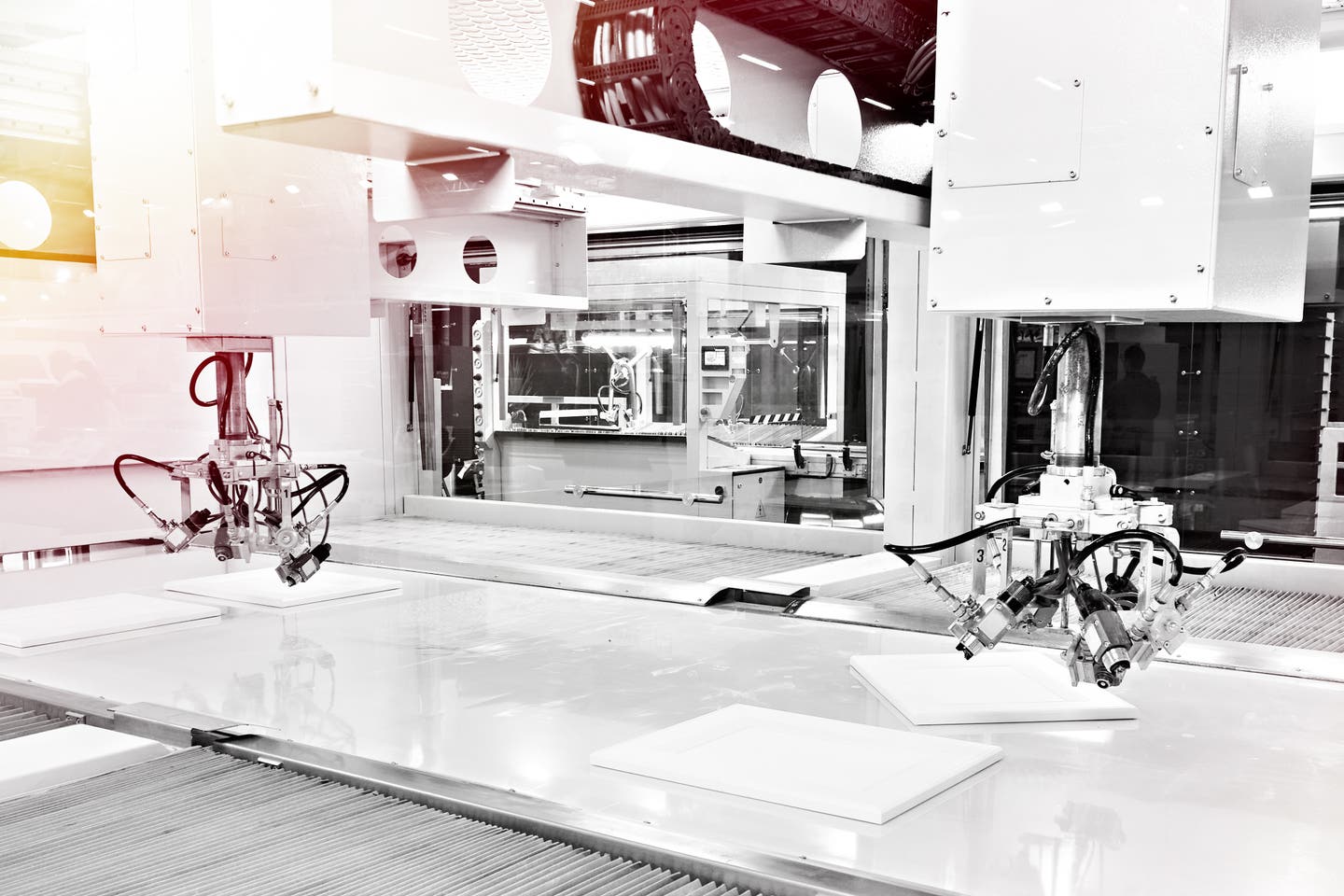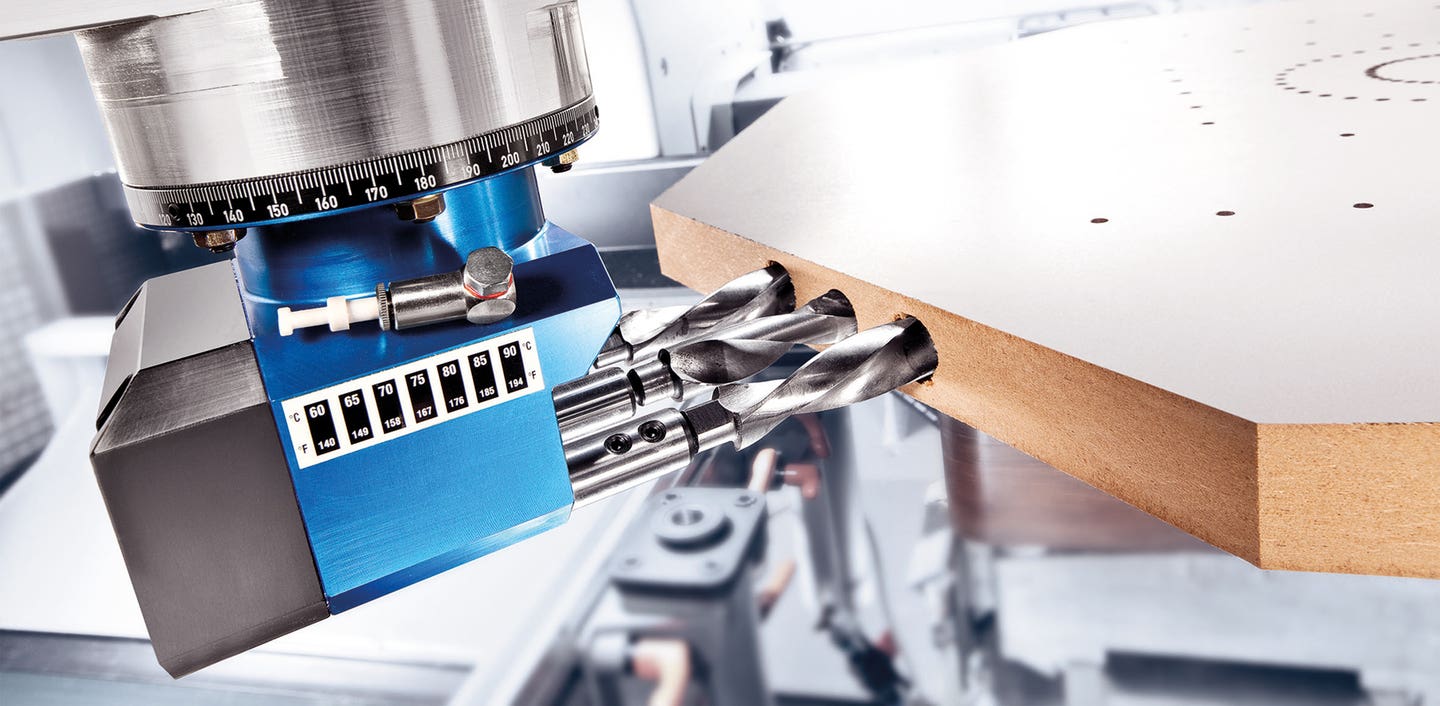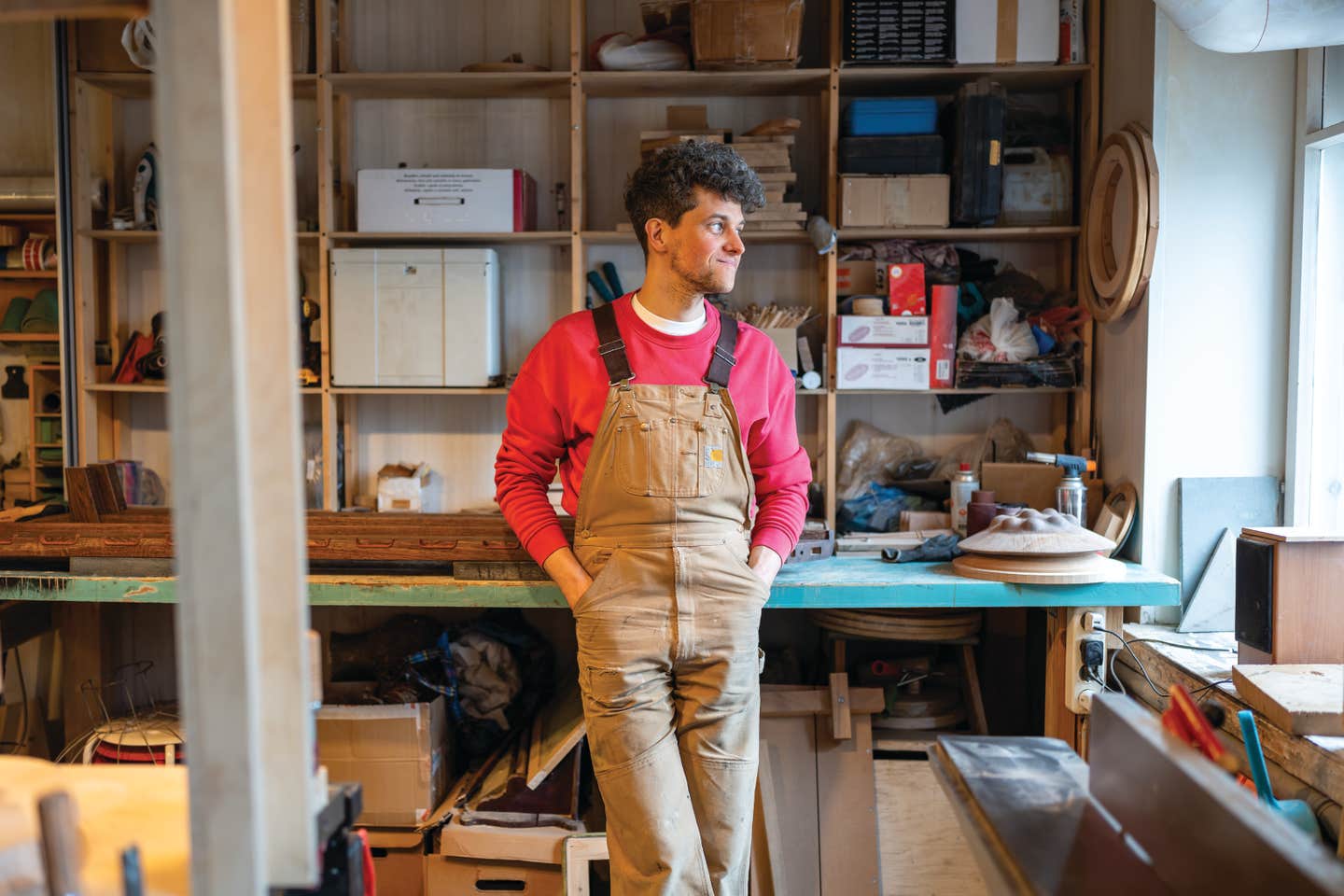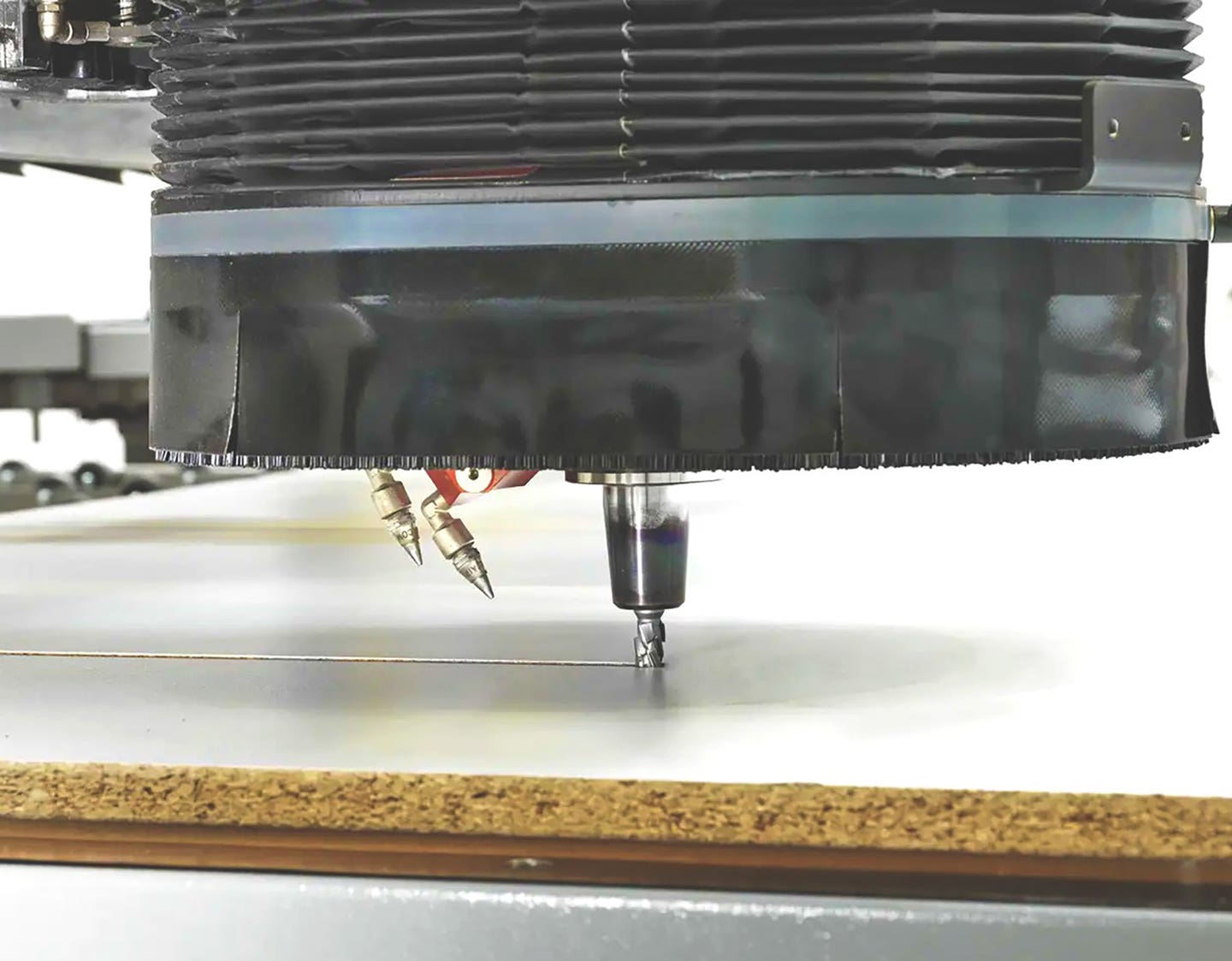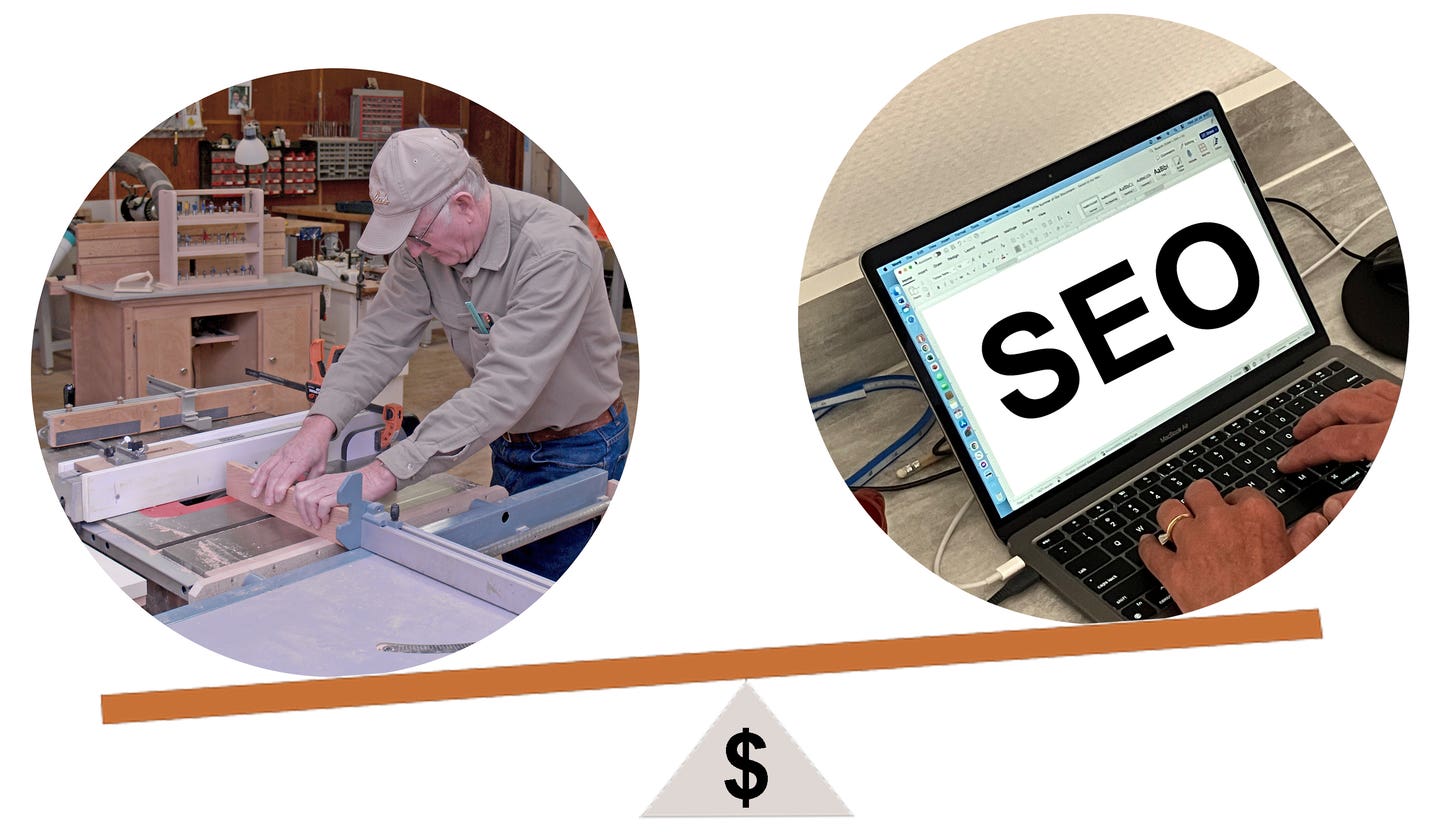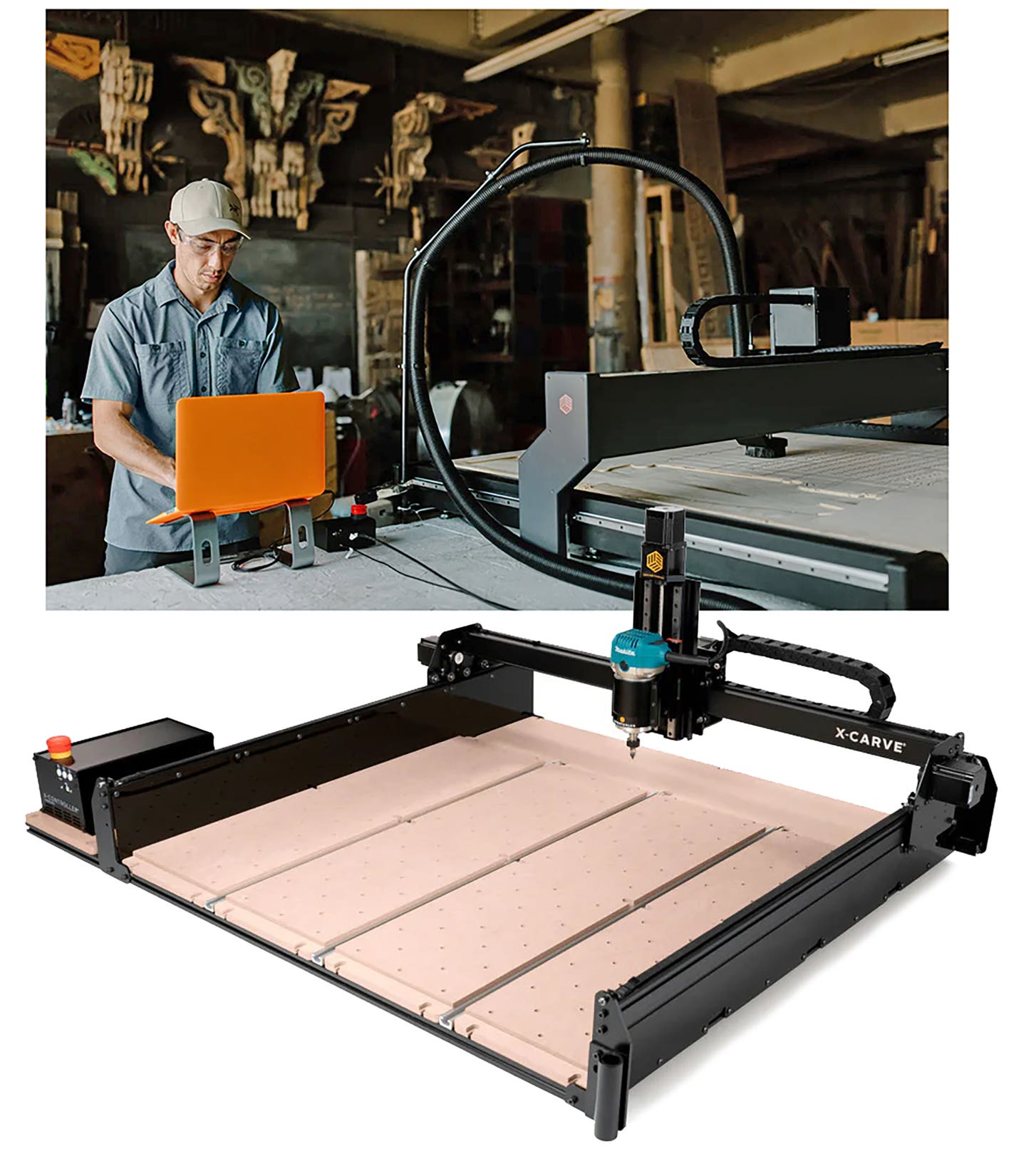Built to last
When Custom Woodwork Inc. in Richmond, Va., reaches its 50-year mark in March 2015, everyone will stop to celebrate — but not for long. As usual, there’ll be work to…
When Custom Woodwork Inc. in Richmond, Va., reaches its 50-year mark in March 2015, everyone will stop to celebrate — but not for long. As usual, there’ll be work to do — drawings to review, bids to make, cabinets to build.
“We’ve been running close to our desired backlog — about three months,” company president Gary Grubb says. “There’re at least 40 jobs in the works, from design to delivery. I’ve heard said you can almost measure the economy by the number of cranes in the air and there are a lot more now than there have been. Construction is active here in Richmond and generally in Virginia.
The company’s focus is on commercial and residential millwork and furniture — custom cabinets, countertops, bank counters, vanities, entertainment centers, computer desks and workstations. Commercial cabinetry represents about 85 percent of total business.
“Although not very satisfying to a skilled woodworker, melamine casework is our bread and butter,” Grubb says. The company’s Striebig Optisaw 1Plus panel saw is the essential pacesetting machine for breaking down melamine sheets into accurately dimensioned cabinet components with minimal waste.
“Our mode of operation may not be what other woodworkers prefer, but over the years we’ve found it to be the best way for us and it’s working fine,” Grubb says. “You won’t find a CNC machine here — takes up a big footprint and getting one wouldn’t give us that much of an edge over any other cabinet and millwork operation. We’ve manufactured casework using a consistent method for over 30 years, so we don’t have to reinvent the wheel every time. I can say with confidence that we’re manufacturing casework as quickly as humanly and technologically possible.
“I stick to the old-school assembly methods and my employees are right in there with me and in agreement. We are probably one of a scant few commercial shops remaining that are still dadoing, gluing and screwing cabinet carcasses together. Countertops go out the door with backsplashes screwed and sealed to the deck. A backsplash shipped loose to the job site and simply stuck to the wall is a recipe for failure. We apply the old rule ‘Do it right the first time.’ ”
Grubb feels the same about equipment. “The majority of our machines are industrial dinosaurs. We have a Brandt edgebander, Onsrud pin router and a Timesaver sander among many other cast-iron implements of production that have been in daily use for many years. Like many things, seems like the older a piece is the better it is. Oh, a bearing might go bad or a belt will break, but we have able mechanics who quickly make the necessary repairs. No sense in buying new stuff when the old ones are doing just fine.”
Besides the raw sounds of sawing and sanding, there seems to be a buzz in the air about Custom Woodworking. Intensive advertising isn’t too essential these days, although the company maintains a website and Facebook page. “Our website gets daily hits and we do get some jobs as a result,” Grubb says. “John Miner in engineering and my son Sam often take photos of finished work and post them to the sites. A good photo can do a lot and we encourage prospective clients to visit our photo galleries. They might see a cabinet like they had in mind which aids in the initial exchange and estimating process. And word-of-mouth referrals are huge for bringing in new customers.”
Mideast connection
“We’re always up for any job, be it a conventional cabinet or a custom CEO desk with special veneers and carvings,” Sam Grubb says. “Of all our jobs, probably the most unique and definitely the most distant was in Abu Dhabi in 2012. Custom Woodwork was commissioned to fabricate premium claro walnut casework for the new luxury Rosewood Hotel restaurant La Cava. The project incorporated climate controlled wine, cognac and cigar storage. Dad turned the installation over to me and I spent six weeks there overseeing the whole project, from hiring workers to acquiring materials and final inspection. It was a win-win for Custom Woodwork and probably a once-in-a-lifetime experience for me.”
Abu Dhabi is the capital of United Arab Emirates and rests on the Persian Gulf. It’s known to be upscale and a political and industrial center. Procuring materials and finding labor were Sam’s biggest problems. Completion took about three weeks longer than anticipated.
Before his trip to Abu Dhabi, Sam was a well-established Custom Woodwork employee. He started on-the-job training at the company at 16, working summers and part time. He then gained management skills at Virginia Commonwealth University in Richmond, where he majored in business and now brings a level of knowledge valuable to the enterprise. He spends his days involved in new business development, estimates and project management.
“I think I’m like my dad in that I’ve always been interested in woodworking, even before I came here. I have the practical experience from operating all the equipment to assembling cabinets. I enjoy canvassing Richmond and the tri-cities area for new work, analyzing architects’ drawings, and doing estimates. I’d like to step into dad’s shoes when he decides to retire.”
Location, location
In some respects, the high volume of activity at Custom Woodwork is a reflection of its location in a vibrant commercial and tourist corridor off the boulevard called Scotts Edition. It’s a short bus ride to Capitol Square and within a mile of The Diamond baseball stadium and numerous museums housing the city’s historic riches.
One of the company’s more memorable jobs was for the Virginia Historical Society. “We designed a series of mahogany display cases for a collection of Virginia-made Civil War-era muskets and relics,” Gary says. “Additionally, we crafted a solid mahogany 42” diameter scaled reproduction of the society’s 175th-year commemorative seal. The seal was a collaborative effort of multiple craftsmen and included hand woodturning, carving and gold leafing.”
The Virginia Historical Society, with whom Custom Woodwork has maintained a business alliance, is undergoing renovation. The company is currently in negotiations to build more display cases and an elaborate mahogany reception desk.
The diverse and heavy workload requires a strong foundation and the dedicated staff of 21 is up to the challenge. “We’re like a well-oiled machine here, thanks to our employees,” Gary says. “They’re loyal and committed to putting out superior products. They give it their all and then some.”
At least a dozen Custom Woodwork colleagues have been there for 20-plus years. “The cumulative experience is irreplaceable,” Gary says. “When you’ve got talented and tenured employees like we have, you can pretty much depend on them operating on their own. Our crew — John Miner, two draftsmen, estimator Mark Lloyd, office manager Susan Wise, plant manager Mike “Bubba” Ford, a production team and two installation teams — keep the ship sailing smoothly.”
Starting up
Beatlemania, lava lamps, and pull-top pop cans all appeared about the same time Custom Woodwork opened its doors for business. Founder John Edwards started out in his garage, expanded to a Quonset hut and then moved permanently into the present 10,000-sq. ft. building.
Around the same time, Gary Grubb was about 10 years old and already beginning to show an interest in tools and hammering things together.
“I think woodworking is in my DNA. Not that my dad was in that line of work, but there were relatives in the family who made a living working with their hands.”
When he was a sophomore at Richmond’s TJ High School, he enrolled in the cabinetmaking and millwork course at the Richmond Technical Center. As part of the class curriculum, he went into on-the-job training at a woodshop just a few doors down the street from Custom Woodwork. “Every day I walked past CWI to the shop where I was training and looked in the door to see what was going on. Never had an idea I’d be the owner of that company someday.”
Following his two-year training requirement, he worked for Biggs Antiques, an ultra high-end antique reproduction furniture company. “There I had the good fortune of being mentored by master cabinetmakers and this sealed my fate and passion for woodworking.”
In 1972, when he turned 17, Grubb hired on at Custom Woodwork as a bench cabinetmaker. Five years later, he left Custom Woodwork to design and fabricate trade show exhibits for the healthcare and pharmaceutical industries. “This career turn was all about turning heads, pulling a rabbit out of a hat and anything but square box cabinetry,” Gary says.
He spent 27 years building extravagant trade show exhibits, climbing the management ladder and traveling around the U.S. to major convention destination cities. By 2004, he’d had his fill of “corporate shenanigans, three-ring policy binders and endless reports” and went back to Custom Woodwork. He and the previous owner, who is also a friend and mentor, worked out a buyout plan and once again, Grubb returned to where he belonged.
“Have to say I like the freedom of a small business operation. I don’t miss all the corporate red tape. Here at CWI, we work in relative autonomy — simple day-to-day woodworking. Interesting projects, excellent craftsmanship and satisfied customers are beautiful things to behold.”
He’s been wearing his workman’s hat for more than 40 of his 59 years and it’s time to idle back a bit. “I take Fridays off. I’ve always been passionate about my job, but it’s nice to have more free time to spend in my home workshop and the great outdoors. In addition to woodworking, I must be outdoors hunting, fishing and farming. These are releases for Sam and me. We have a little getaway with a log cabin and recently completed a log workshop. ”
When he hits a bump in the road or things don’t go as planned, Gary quickly reflects on his late wife’s 30-year struggle with multiple sclerosis that ended two years ago. He can then put things back in perspective. “All my energy and focus were consumed supporting my wife, keeping the family together, the business going and providing for Sam’s education.”
The board room
The shop’s command center is known as the “boardroom.” On one wall is a “big green display” maintained by Mark Lloyd. It’s essentially an at-a-glance grid, which has been there for more than 30 years. Each tag on the board represents a job and is manually advanced along its path as it progresses from drafting through installation.
In many respects, the room represents a pre-tech era. “You’ve got to remember that this operation got going before computers were in full use,” Lloyd says. “For quite a long time only accounts payable was computerized. Now we have a dedicated three-member tech department. Back maybe 30 years ago the founder did set up a DOS program for casework, but now our drafting team uses AutoCAD-based Microvellum.”
With all his employees doing a top-notch job of keeping the enterprise going, what’s left for Grubb? “My basic function here right now is paying the bills and tending to our employees. That means providing paychecks and managing our employee benefits programs. Accounting isn’t my strong suit, but Susan has my back.”
There might not be a lot resting on his shoulders, but thoughts are still rumbling around in his head. “Someone once told me that staying in one place isn’t good. I should always be thinking about new ways of doing things.”
So is Grubb putting finishing touches on some new ideas when he seems to have a system that works? Maybe, but for sure he’s planning that 50th birthday bash and then there’s the Christmas party and barbecues out in the parking lot — anything for the benefit of his faithful employees.
Contact: Custom Woodwork Inc. 1719 Arlington Road, Richmond, VA 23230. Tel: 804-355-2188. www.customwoodworkinc.com.
This article originally appeared in the December 2014 issue.


